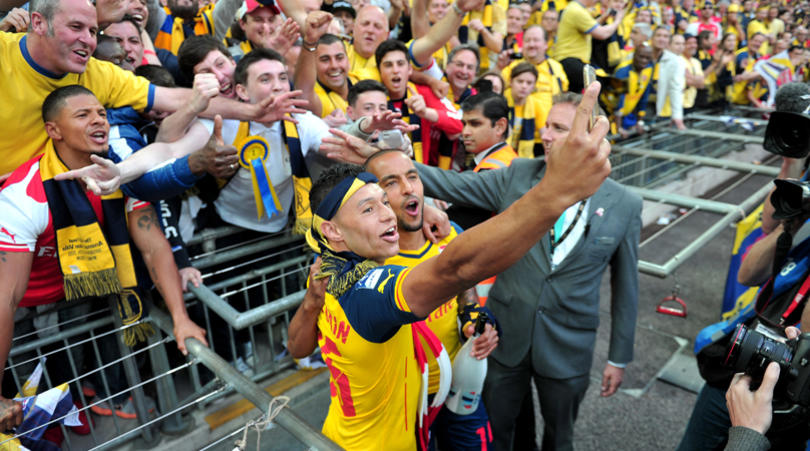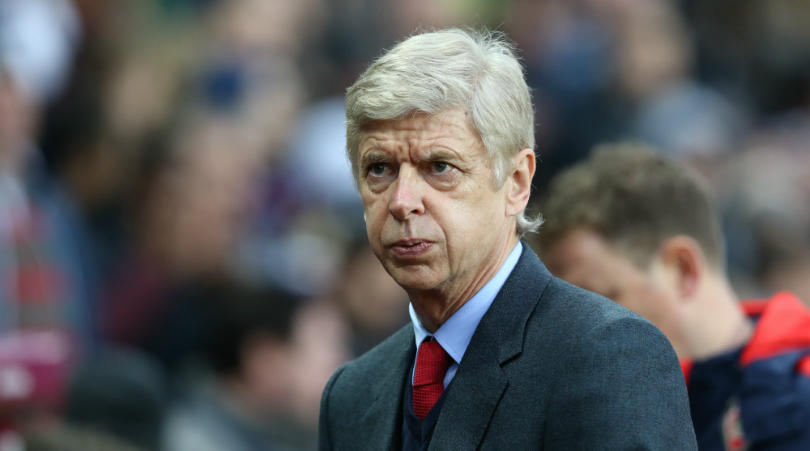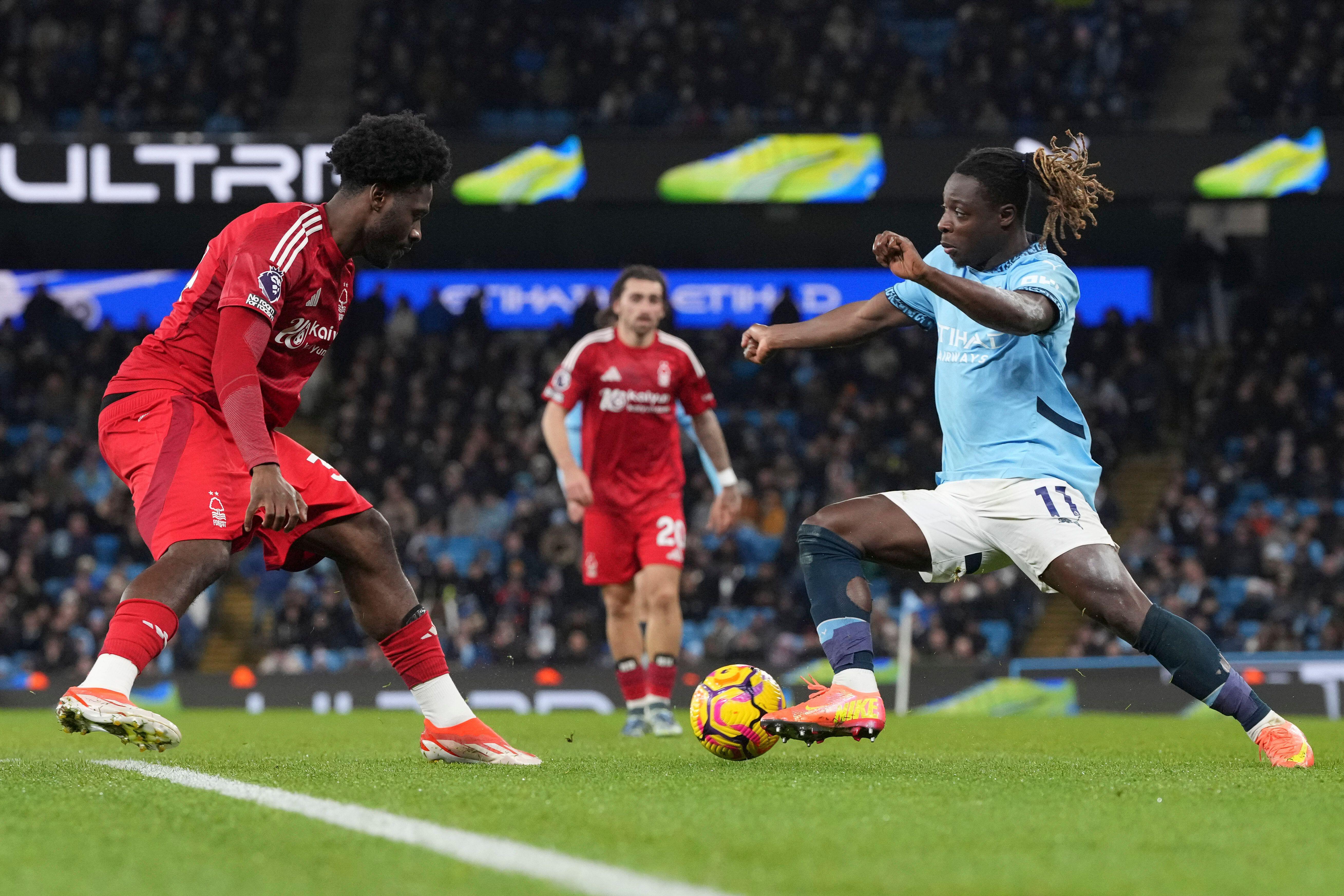Sorry, Theo: it's time you and Arsenal parted ways – for your sake too
It's now over 10 years since the England forward moved to the Emirates Stadium, writes Jon Spurling, but there's been too little progress since then to justify the club retaining his services...
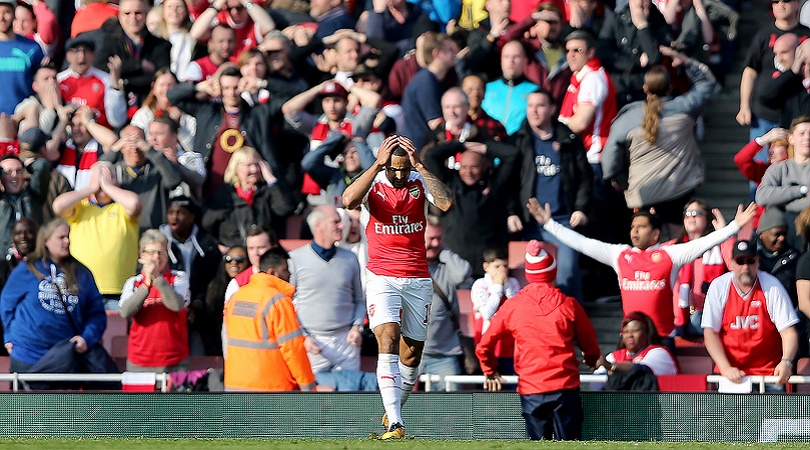
Perhaps more than any other Arsenal player, Theo Walcott has personified the club over the last decade. Like the Gunners themselves, he has frequently failed to deliver on the biggest occasion.
Frustratingly inconsistent but capable of flashes of searing brilliance, the former Southampton wonder boy has flitted between the pitch, substitutes' bench and treatment room with alarming regularity. This season has probably been the least fulfilling of all for the pacy forward.
From January onwards, he's barely figured at all in the first team, and last week – to no one's real surprise, most damningly – he failed to make the cut for Roy Hodgson's provisional Euro 2016 England squad. A decade after joining Arsenal, he’s no nearer to morphing into a consistent match-winner for the club than he was when he joined the Gunners from Southampton in January 2006 aged just 16.
The question is: why?
Early promise
The coaching has been laissez-faire at best, with Walcott the prime example, tactically deficient in so many aspects and frequently appearing to be little more than the rawest of rookies
Shortly before signing Walcott, Wenger vowed that his coaches would tap into the players’ raw potential and turn him into a “top, top player”. It was at the same time that the financial ramifications of the club’s move to the Emirates Stadium meant that Arsenal were no longer willing to shell out larger fees on established players. It was also in the period when Wenger – who'd been criticised in some quarters for fielding entirely non-English sides – claimed: "In a few years, the core of this team will be English, winning trophies in the finest stadium in the country."
Yet as with so much about Arsenal in the years since, it hasn't worked out that way. Partly through necessity, Wenger has signed a string of young British players including Alex Oxlade-Chamberlain, Calum Chambers and Aaron Ramsey for relatively little cash with a view that bronze-plated starlets would mutate into gold-plated winners. It was always a gamble.
Get FourFourTwo Newsletter
The best features, fun and footballing quizzes, straight to your inbox every week.
Taking that risk hasn't really paid off, and the coaching afforded to the players has consistently failed to improve their output and tactical nous. It has been laissez-faire at best, with Walcott the prime example: tactically deficient in so many aspects and frequently appearing to be little more than the rawest of rookies.
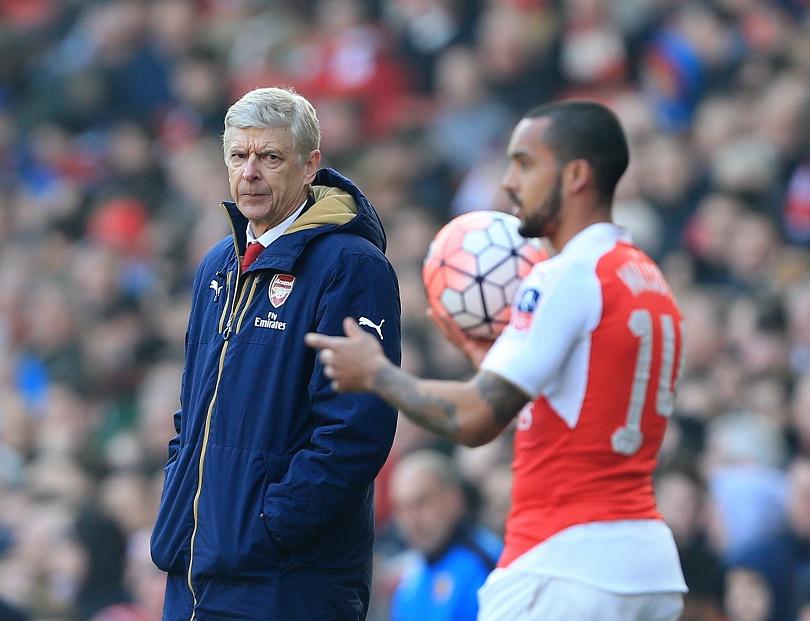
Since the era of the Invincibles, Wenger has sacrificed power, strength and guile for speed. Arsenal players are smaller, lighter, leaner and more pyrotechnic. They’re also frailer and more flaky. That isn’t a cocktail for a title-winning side, and Walcott is both a symptom and a cause of one of the Gunners' inherent problems.
He has also been unlucky, and not simply in the sense that he's been regularly blighted – like so many Arsenal stars – by injuries. Problems with his shoulder, abdomen, hamstring and knees have restricted Walcott to an average of 23 league starts per season since 2006. He joined Arsenal as the club was about to enter an era of flux, selling off their brightest talents each summer to more cash-laden rivals like Chelsea and Manchester City. Too much was expected of him too soon, as demonstrated by the fact he was selected for England's 2006 World Cup squad.
Hope over expectation
Wenger (correctly) doesn't see the long-term viability of Walcott as a goal poacher at Arsenal, so Theo is doomed to feel disappointed for as long as he sticks around in north London
Arsenal have never satisfactorily resolved the issue of whether he's more effectively deployed as a striker or out wide. Initially, Wenger didn't rule out such a move, pointing out that Thierry Henry made the shift when he arrived at Highbury in 1999. But Walcott isn't Thierry Henry – his finishing and positional sense isn't potent or savvy enough.
In fairness to the player, he's occasionally received mixed messages from his manager on the issue; at times, Walcott has suggested he’s been messed about. In the 2015 FA Cup Final, he began as centre-forward and scored Arsenal's opener against Aston Villa, only to be shunted back out wide at the beginning of the 2015/16 campaign. Wenger doesn't see the long-term viability of Walcott as a goal poacher at Arsenal, so he's doomed to feel disappointed for as long as he sticks around in north London.

Walcott scores against Villa
Perhaps the key fact is that, like Arsenal throughout the Emirates era, Walcott is simply not top drawer. Good but not great. Two years into his Arsenal career, Wenger insisted the player would "make his shift from a boy to a man and shall soon be a monster". The charming and articulate Walcott (his likeability factor is certainly not up for debate), like many of his team-mates, simply isn’t ogreish or imposing enough on the pitch. As a group of players, Arsenal are too damned nice for their own good.
There’s always been genuine affection behind the “Theo, Theo” chants as he warms up, or (occasionally) shows his on-field panache. But if Arsenal fans are honest with themselves, the song has always been in hope, rather than expectation, of a good performance.
Former Gunners skipper Patrick Vieira commented that Arsene Wenger’s biggest strength – and greatest weakness – is his loyalty to his players. Walcott has been one of the prime beneficiaries of his manager’s devotion at Arsenal, pulling in a reported £140k a week while generally delivering little, when a Mourinho or a Ferguson would have dispensed with his services seasons ago. It’s been to the detriment of the club, and his own career.
Time to say goodbye
With the fight to finish in the top four – much less actually win the Premier League – becoming tougher every season, Arsene Wenger must jettison his misfiring forward and send out a strong message that the annual ‘treading water’ show at Arsenal – a feature of the Emirates era – needs to become a thing of the past.
From a financial point of view, the 27-year-old’s pace – his prime weapon – will wane over the next few years and Walcott doesn’t possess the tactical savvy to adapt to another role at the very highest level. It’s probably time that Wenger cashed in on Walcott and reinvested the money wisely while he still commands a reasonably high fee.
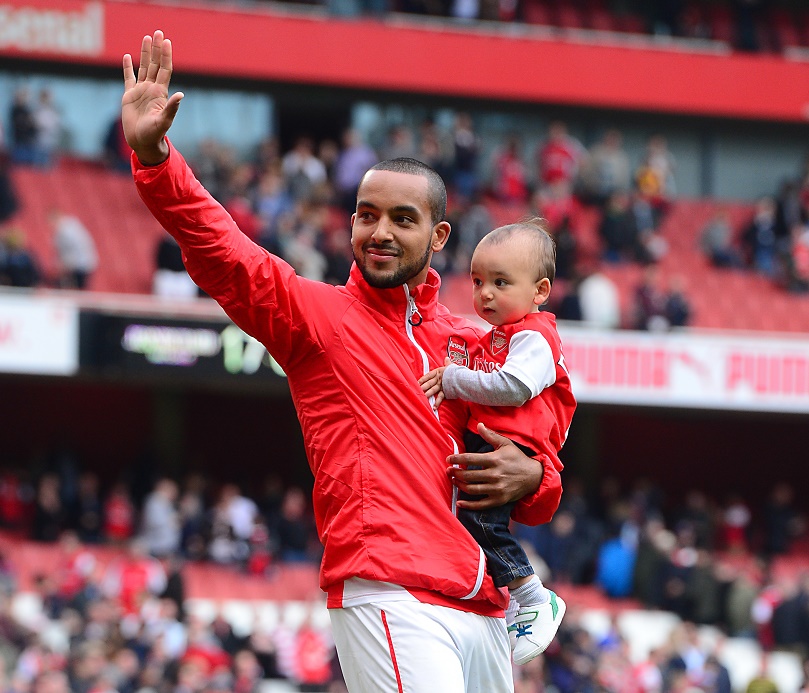
There have been some sublime moments. Walcott’s second-half brace against Tottenham in February 2012 in the famous “Mind the Gap” match, when Arsenal came back from 2-0 down to win 5-2; his coruscating run past six Liverpool players to set up Emmanuel Adebayor’s goal in the Champions League at Anfield in 2008; the impudent strike (he picked himself up after falling over) at Stamford Bridge in 2011 in Arsenal’s 5-2 victory; his fantastic curling effort at the Emirates against Manchester City in December 2015.
But they’re not enough. Too often, Walcott has been found wanting, disappearing from matches entirely. Either that, or he fails to beat his man and misplaces his passes.
Ten years after he joined Arsenal, Walcott’s occasional flickers of finesse simply don’t cut it. For the sake of both the player and the club, it’s time for a parting of the ways.
Jon Spurling is a history and politics teacher in his day job, but has written articles and interviewed footballers for numerous publications at home and abroad over the last 25 years. He is a long-time contributor to FourFourTwo and has authored seven books, including the best-selling Highbury: The Story of Arsenal in N5, and Get It On: How The '70s Rocked Football was published in March 2022.
